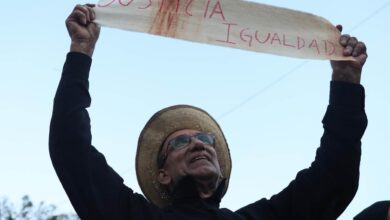What does Facebook, Instagram, and Whatsapp’s outage leave us?
Listen this article
This is the balance we make and the conclusions we reached after Facebook-owned applications' outage on Wednesday, March 13

A week has passed since the most recent outage of Facebook, Instagram, and Whatsapp. On Wednesday, March 13, these applications, all owned by Facebook, showed connection failures for almost 24 hours. The outage was intermittent because at times they worked and not at times. According to The Verge, users from Paraguay, India, Bangladesh, Argentina, and some US states began reporting problems around noon on Wednesday. In the afternoon, according to The Guardian, European and other Latin American countries confirmed that the applications were down. The users made use of Facebook's competitor, Twitter, to report problems. Mark Zuckerberg also made use of this social network to warn users that he was aware of the problem and to affirm that it was not the result of a cyber attack. By Thursday morning the service had been restored. The BCC says that this has been the worst failure in the history of the application group.
Leer en español: ¿Qué nos deja la caída de Facebook, Instagram y Whatsapp?
We're focused on working to resolve the issue as soon as possible, but can confirm that the issue is not related to a DDoS attack.
— Facebook (@facebook) 13 de marzo de 2019
Read also: Zuckerberg and Facebook: the road to privacy
The outage of these three applications' service affected in a certain way its users in the afternoon that it lasted suspended. On the one hand, in their personal life. Undoubtedly, since the rise of social networks in our lives, the way in which we interact has radically changed. Social networks opened new paths in the forms of interaction between people and closed others. After the applications' outage and the reaction of users to it, it is worth wondering if social networks have become our only way of interacting and communicating. The users used a fourth social network, Twitter, to report the failures in the other three, that is, we have no other way to communicate and report the failures of these services. It is necessary, then, not to depend too much on these forms of communication and to use again, while we use social networks, other means that we previously used to share information and content.
In addition to communication and interaction between human beings, social networks have helped forge in each of us a virtual character, an 'I' that exists in the virtuality of the Internet. It is, then, also a question about identity: to what extent has it begun to depend exclusively on social networks? Before the outage of these for a few hours, users reacted strongly because although in some parts of the world applications could be opened, in no case could publications be made. Facebook, Instagram, and WhatsApp's outage meant for some silence, the outage of a voice of their own during an afternoon. Thus, one could also wonder to what extent we have given social networks a special power over our lives and our voice as individuals.
On the other hand, the work and business of the users were also affected to some extent. In our time, the way of doing business and working has changed to a great extent due to the technologies of the new millennium. However, work and business should not depend entirely on social networks. These should be a tool that we use and that make easier communication at work in many ways. Even so, databases, emails, and websites are also assets that each company or individual owns. In this sense, it is there and not in the social networks where we must deposit our information.
Social networks are also platforms that belong to others, unlike a website that belongs exclusively to its owner. Thus, business databases are more secure in their own website and not in third-party platforms, because in this way they have more control.
What leaves us this Facebook, Instagram and Whatsapp's outage is above all a thought on what aspects of our lives we have left in the hands of social networks. It also leaves us with an invitation to look for other ways to communicate and store our information while enjoying the benefits that social networks can provide. We must evaluate the risk in contrast to the reward that the use of social networks can bring us. And we must, above all, not depend completely on them, because we already saw that they can suffer an outage during an afternoon.
LatinAmerican Post | Editorial Team





